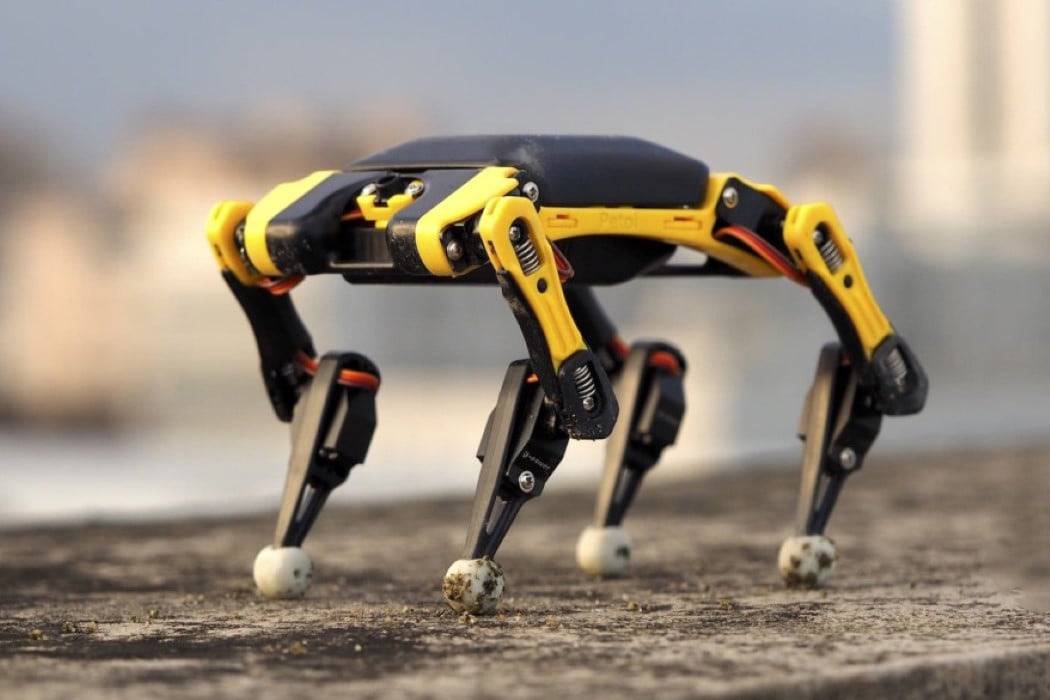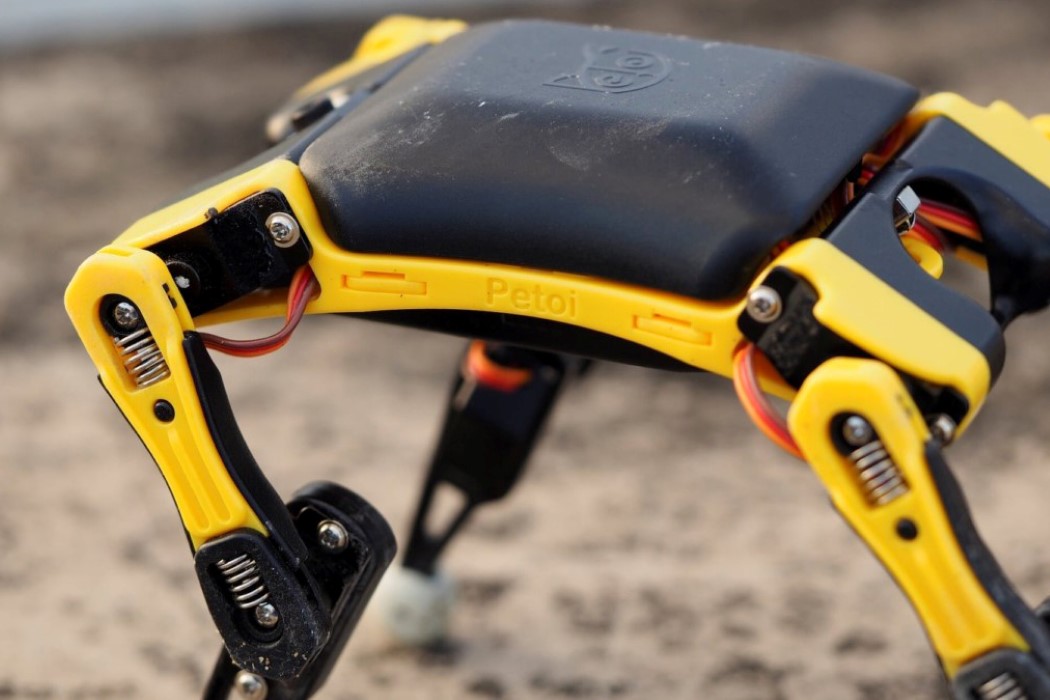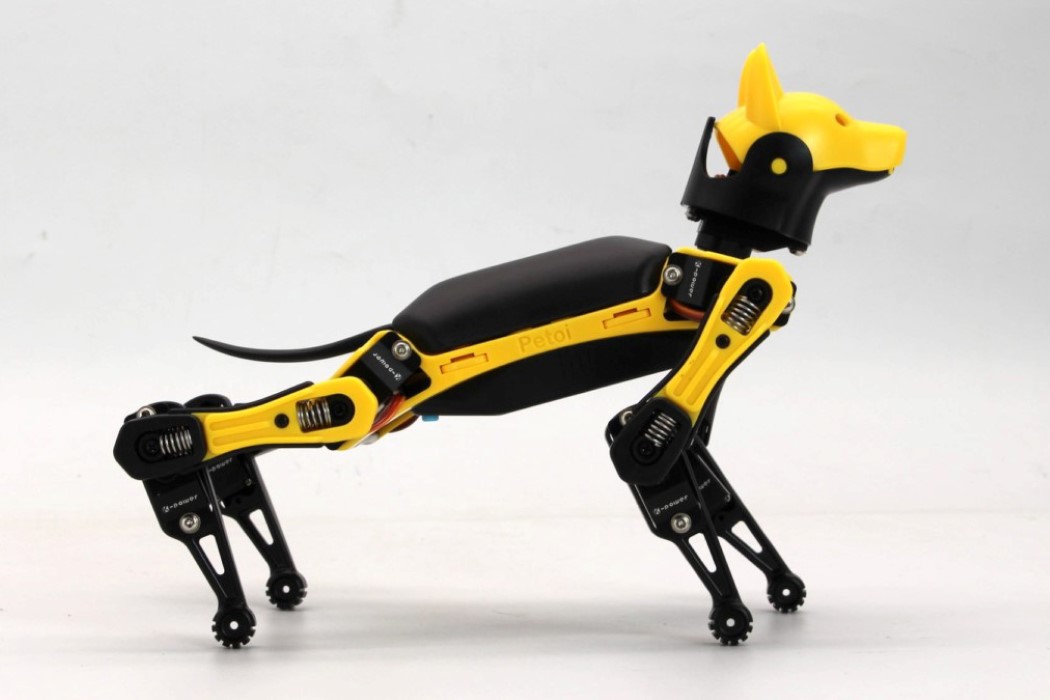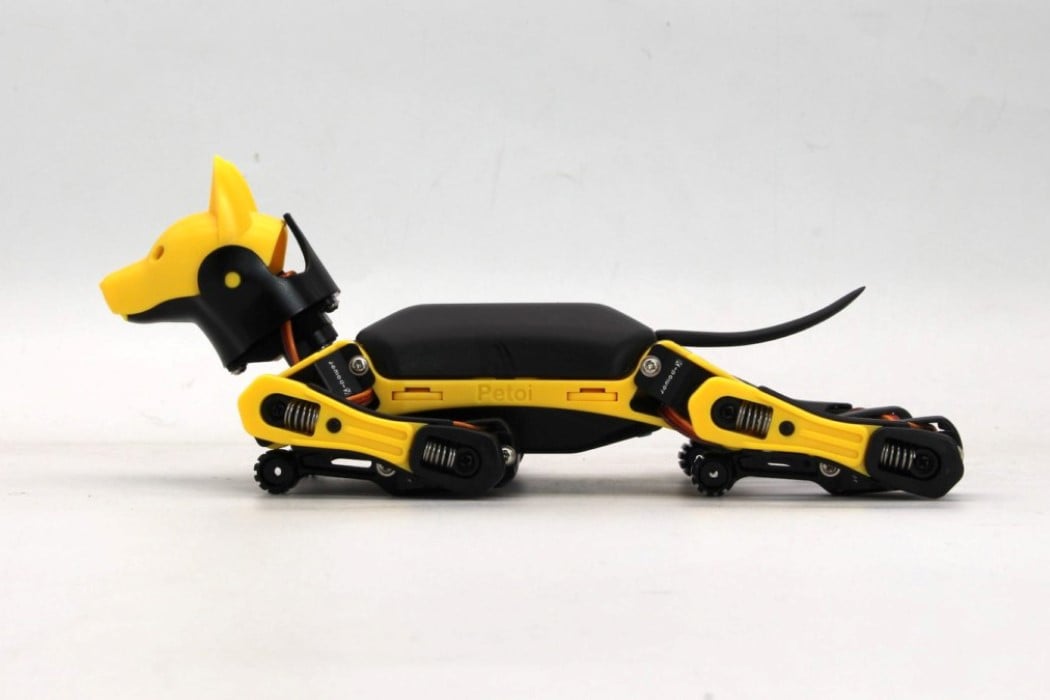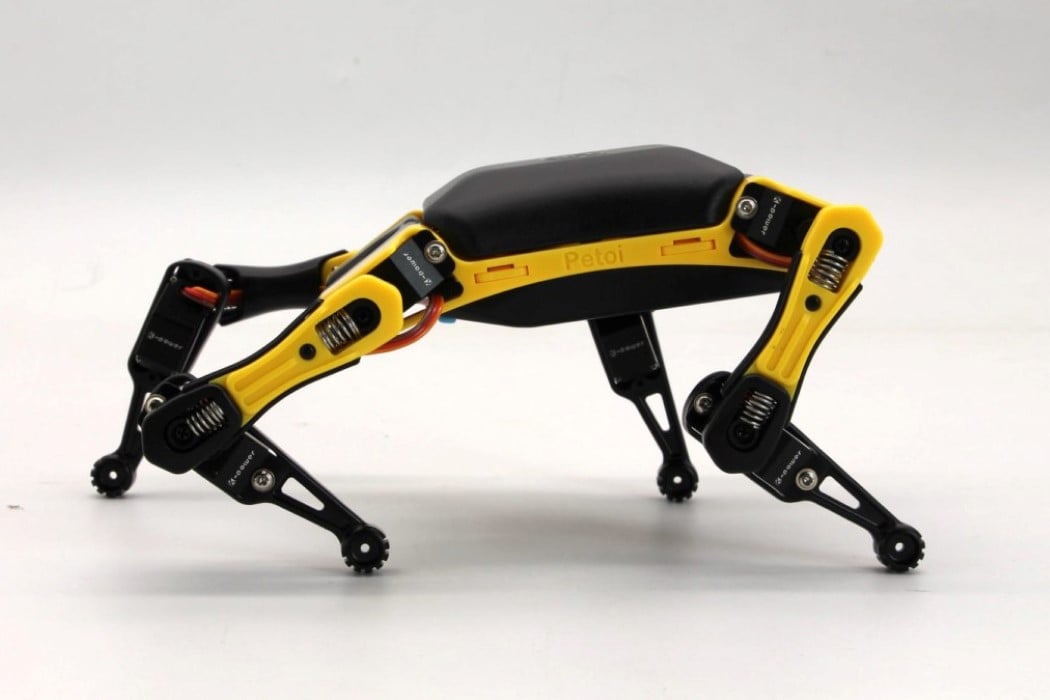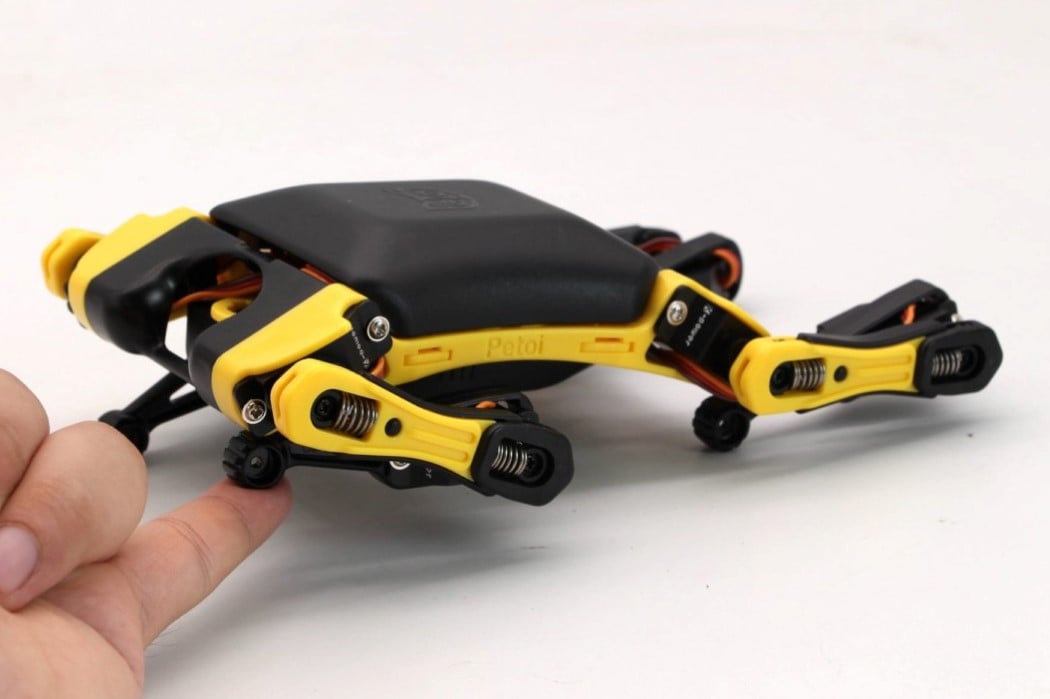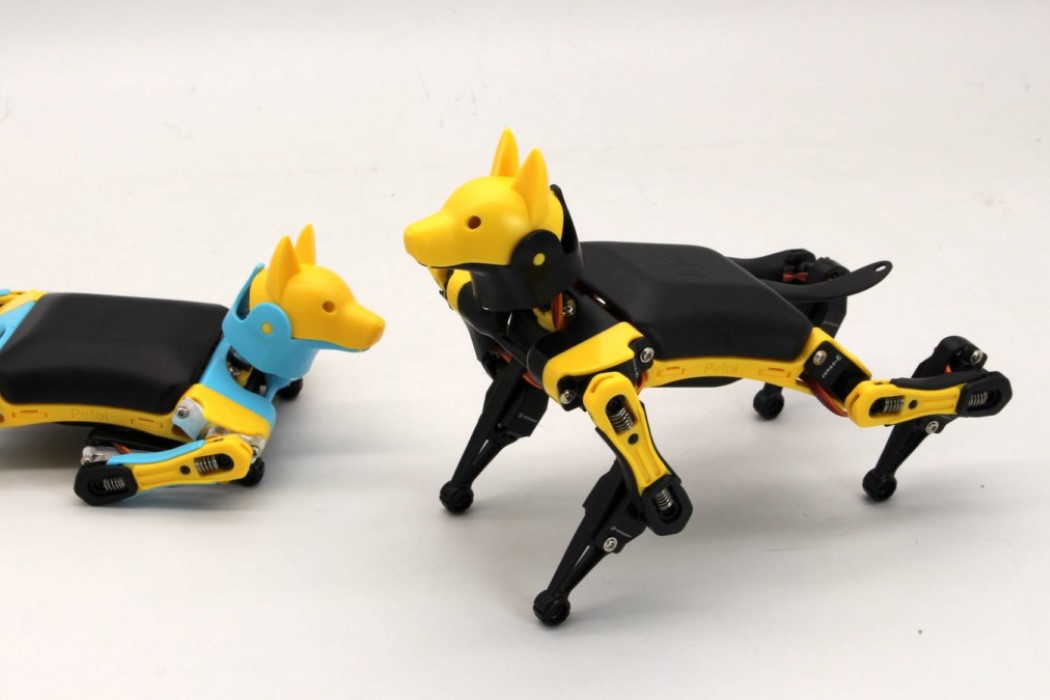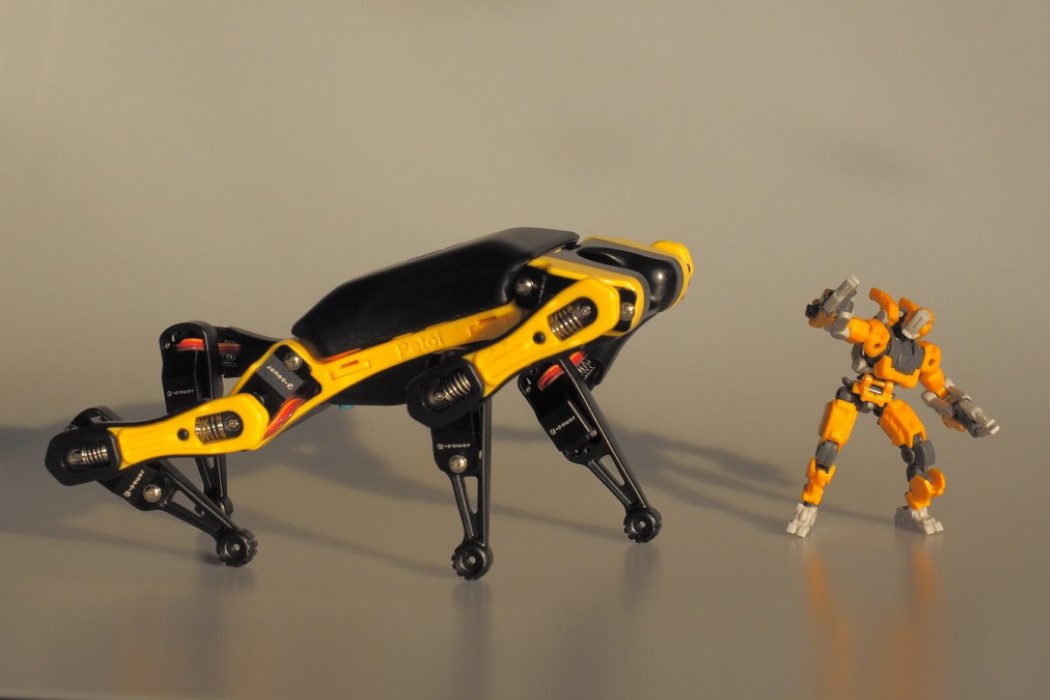Tag Archives: boston dynamics
This robot dog learned how to get up after being knocked down
Watch the Boston Dynamics robot family dance like 2020 was a good year
Hyundai confirms its $1.1 billion acquisition of Boston Dynamics
SoftBank has reportedly sold Boston Dynamics to Hyundai
Hyundai is reportedly in talks to buy Boston Dynamics
This Boston Dynamics robot dog’s smaller sibling is more affordable, and can be taught new tricks!
Meet the Bittle, if it looks vaguely familiar, it’s because it most certainly is. Modeled on the design of the popular Boston Dynamics robot dog, Spot, the Bittle features a similar design + color scheme, and crushes the notion that an old dog can’t learn new tricks because Bittle runs entirely on Arduino, and can be quite literally programmed to do all sorts of things!
You can either look at Bittle as a STEM project for your child, or a really interesting toy for adults to play and tinker with. The robot comes with a plastic body that doesn’t take long to assemble, and features a modular body, which means you can either build the Bittle without a head or tail (sort of like Boston Dynamics’ Spot), or add them on for good measure and make your toy look more playful and less creepy. Once assembled, the Bittle’s Arduino hear powers its movements, allowing it to walk, jog, jump, and climb up obstacles with ease. An infrared sensor helps with obstacle detection, and the incredibly nimble and flexible limbs help Bittle even get up if it collapses over.
The Bittle runs on an open-source network that you can use to program it and teach it new tricks. There’s even a fan-made app that allows you to remotely control your pet dog, but it isn’t quite as freeing as Bittle’s ability to run Arduino IDE, Python, Codecraft, or other languages. All of Bittle’s code sits in a GitHub repository for you to immediately begin tinkering with, and the ever-expanding community is always providing new tips and tricks that you can use to make the Bittle do your bidding… just don’t turn it sentient.
Bittle’s head module does a little more than anthropomorphizing the robot quadruped. It additionally allows you to plug more components into the bot, including a tiny camera module that quite literally allows Bittle to see where it’s going. The bot is built to be relatively lightweight and toyish, but it can carry loads of up to 1lb or 453 grams too, so you could jolly well program it to carry a remote or a biscuit to you. Moreover, it provides the perfect framework to really understand how robots are built, how they behave, and how you can build them to be better at what they do, for an incredibly affordable price tag of $250. Just please, don’t turn them sentient…
Designer: Petoi

